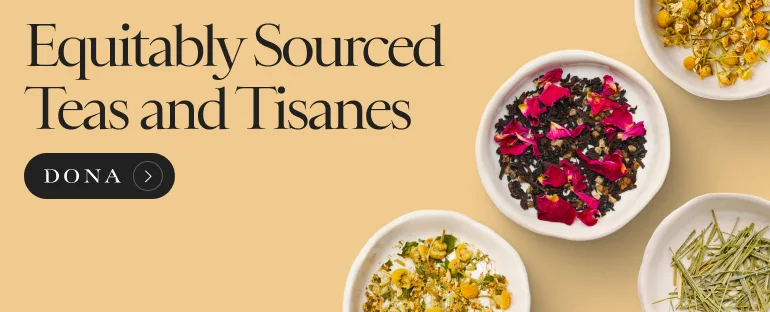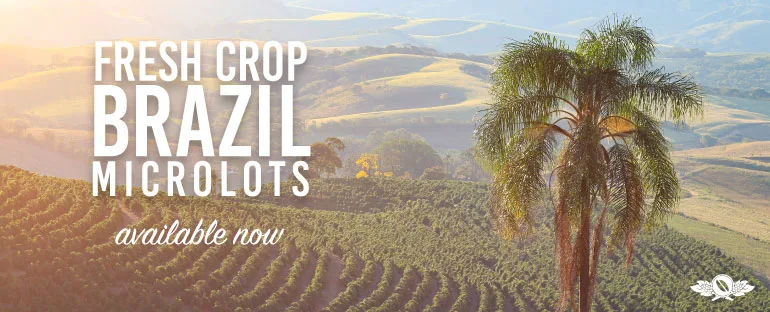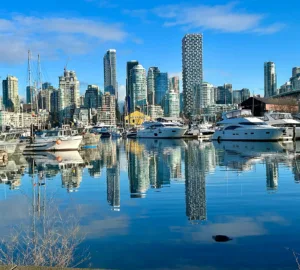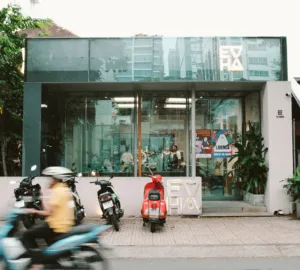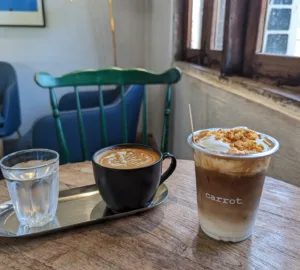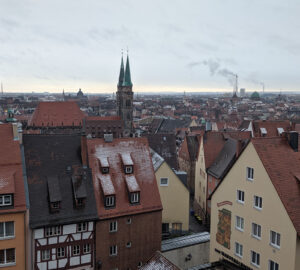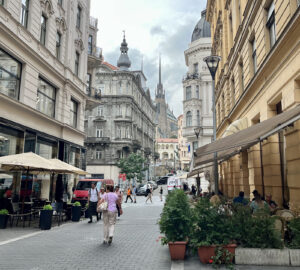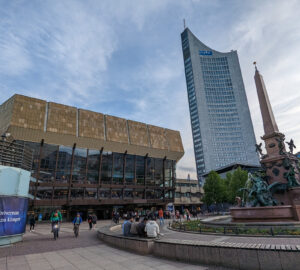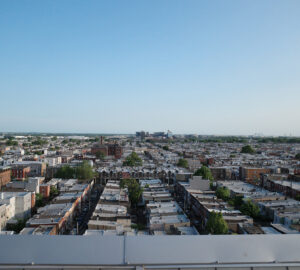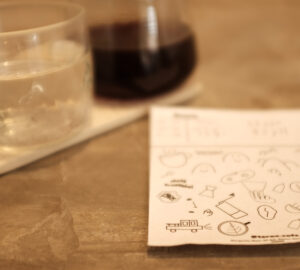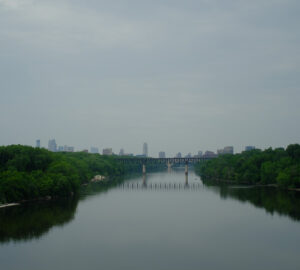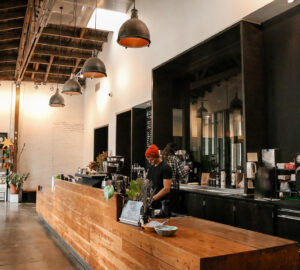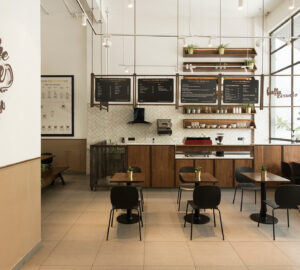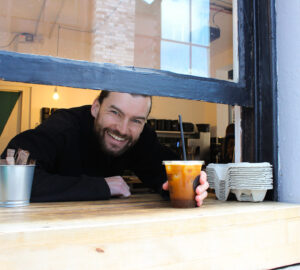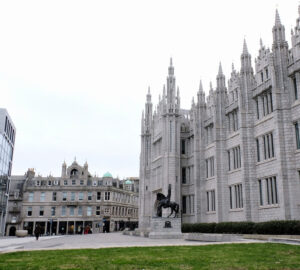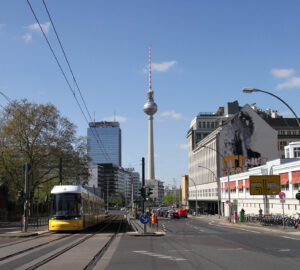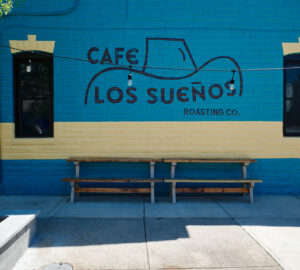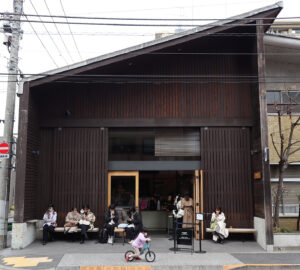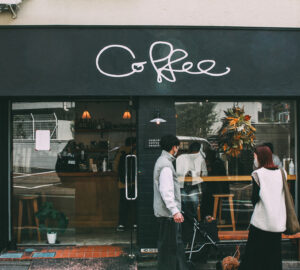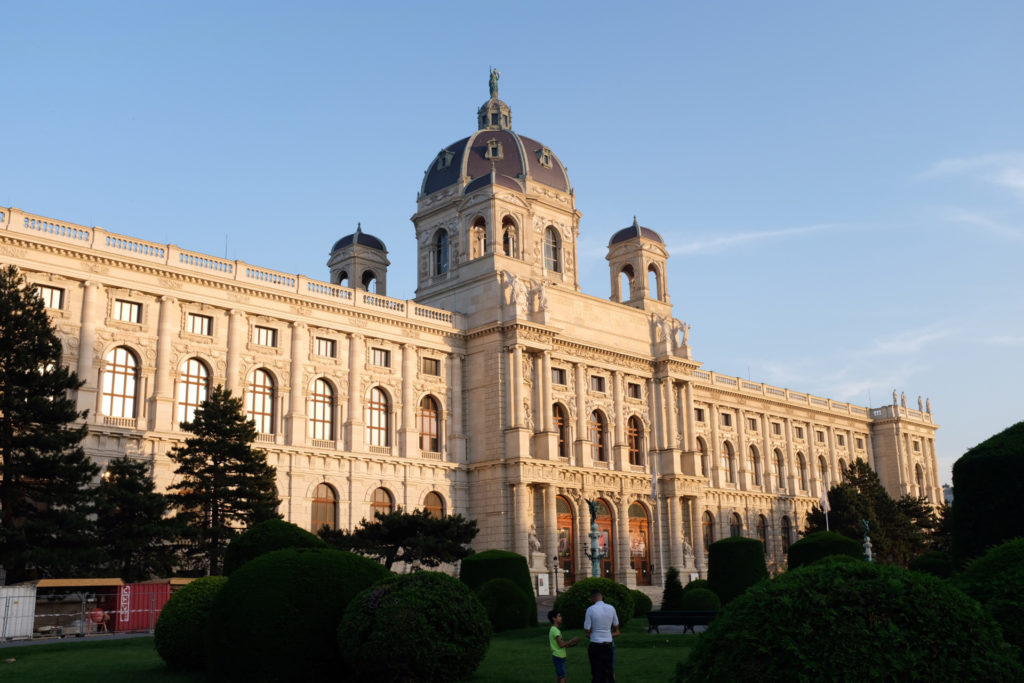
If one were to write an article about the best cities in the world to drink natural wine, it’s easy to guess which places would top the list. But shift the subject to most exciting or most interesting, and you couldn’t tell the story without Vienna.
Austria has a rich history of wine production, albeit one that’s still tainted by the scandal-plagued 1980s, when a number of producers were discovered to be adulterating their wines with dangerous chemicals. Perhaps it’s fitting that Austrian wine’s recent popularity has been spurred on by a new generation of vignerons who practice organic, biodynamic farming and low intervention in the cellar.
As Austria’s capital and largest city, there’s no better place to drink Austrian natural wine than Vienna. From trendy bistros to principled bottle shops, natural wine lovers in Vienna are spoiled for choice. Even most grocery stores stock a couple of Demeter-certified options. Although there’s perhaps no better place to enjoy natural wine in Vienna than on the banks of the Danube with a few friends (BYOW), the following places are essential stops while in Vienna.
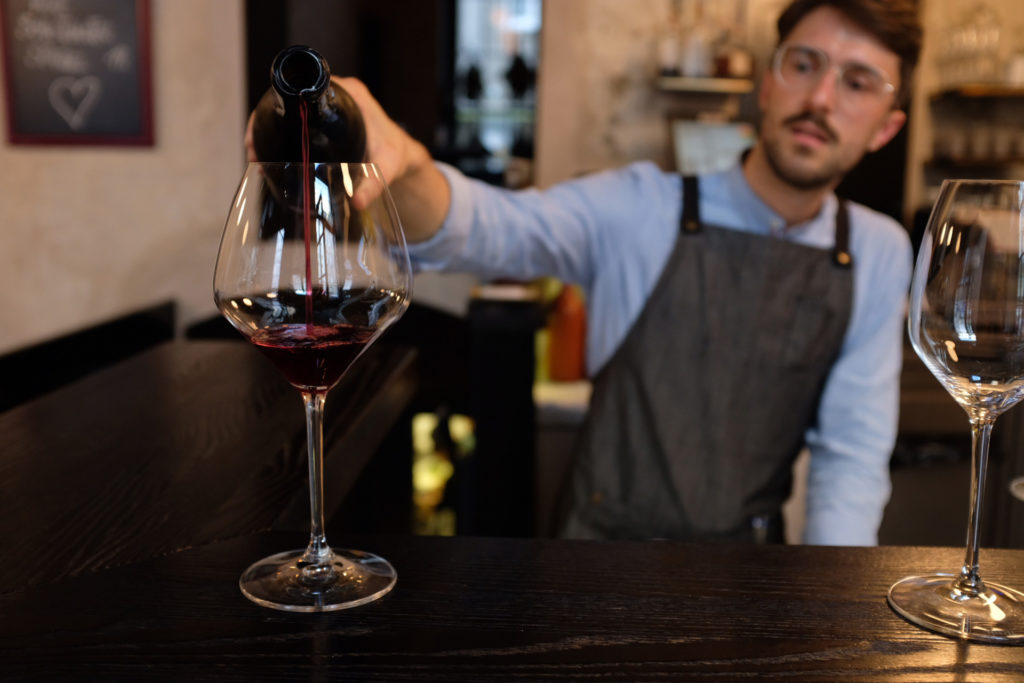
O Boufés
“We only sell wines from producers that we really know. It’s really a relationship to each farmer,” says Dominik Ginzinger, manager and sommelier at O Boufés (who has since stepped down as Wine Director), a wine bistro in Vienna’s historic First District. It’s an exacting standard, but one made possible by Vienna’s location in the heart of Central Europe and Ginzinger’s extensive relational network. By car, Vienna is only an hour from Austria’s Burgenland region—ground zero for the country’s nascent natural wine community. Expand that perimeter another hour, and one could visit vignerons in Slovakia, Hungary, or even Czech Republic.
Before overseeing the wine list at O Boufés, Ginzinger received more conventional sommelier training. “I learned all of the things that I don’t like,” says Ginzinger. “How a wine should be and a region should taste.”
When the opportunity came along to manage Michelin-starred chef Konstanin Filippou’s new bistro, Ginzinger jumped at the chance to curate an all-natural wine list. “We were the first wine bar in Vienna to do that,” says Ginzinger.
My first evening at O Boufés, I don’t have a reservation, but they squeeze me in at the bar. I start with Rosé Sekt from Franz Strohmeir. This Champagne-method sparkling wine is made from old vines of Blauer Wildbacher and shows remarkable complexity and fruit. It sets a high bar for my first glass in Vienna.
Ginzinger works directly with vignerons to get O Boufés-exclusive cuvées, such as a special bottling of Judith Beck’s Bambule Blaufränkisch. The wine is light and playful, served chilled. Black fruits dominate the palate, but peppery tannins, a trademark of the grape, round things out for a slightly more serious wine than your typical summer glou glou.
On my second visit to O Boufés I’m lucky enough to arrive on the release night for Birdscape, a “pink maceration” of Pinot Noir and Blaufränkisch from cult Burgenland producer Christian Tschida. “He doesn’t like the term ‘rosé’,” says Ginzinger. I happen to love rosé, but tasting the bright ruby-colored juice, I can understand why Tschida avoids the term. The wine is light and refreshing, but with a backbone that seems to defy the color.
“We still have a lot of work to do. We still have to wake up the people and bring more the natural wine philosophy to the guest,” says Ginzinger. “The beautiful thing of it is. Our guests are bringing their friends now.”
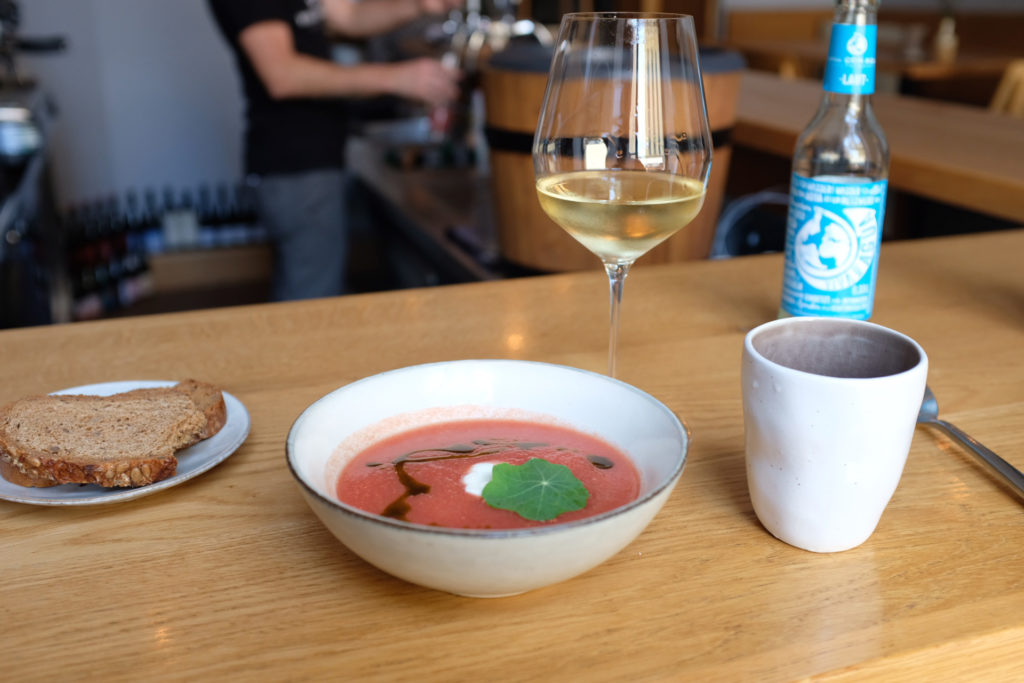
MAST Weinbistro
Perhaps everything you need to know about MAST Weinbistro is captured by the empty bottles of Piere Overnoy and Domaine Clos Rougeard that line the walls. The food and wine selection is serious, but the vibes are effortlessly casual. A business lunch, a romantic date, a late night out—all feel equally appropriate here.
Vienna is experiencing a heatwave when I visit, and in a city where no one has or appears to want air conditioning, it’s hard to get a break from the heat. Luckily, the summer menu at MAST Weinbistro is perfectly attuned to the weather. A light salad of greens, pickled fish, and goat cheese pairs perfectly with Le Chenin d’Ailleurs from Francois Chidaine. It’s everything I hope for from a Loire Valley Chenin (in this case Limoux): bright, floral, mineral. Chidaine is something of a legend, with farming practices that go beyond your typical natural vigneron, such as not tilling the soil.
As MAST owner Matthias Pitra fills my glass, I mention that I am trying to stick to Austrian wines while I was in Vienna, but I couldn’t resist ordering Chenin in this heat. Pitra silently slips away and soon returns with a bottle of Herbert Zillinger’s “Weintalried,” a crisp, mineral Grüner Veltliner that proves to give the Chidaine a run for its money.
As wonderful as the wines are, for me, the gazpacho steals the show: pureed, with a light, airy texture but a remarkable depth of flavor.
“It’s only soup,” says Pitra. But his smile betrays a playful confidence.
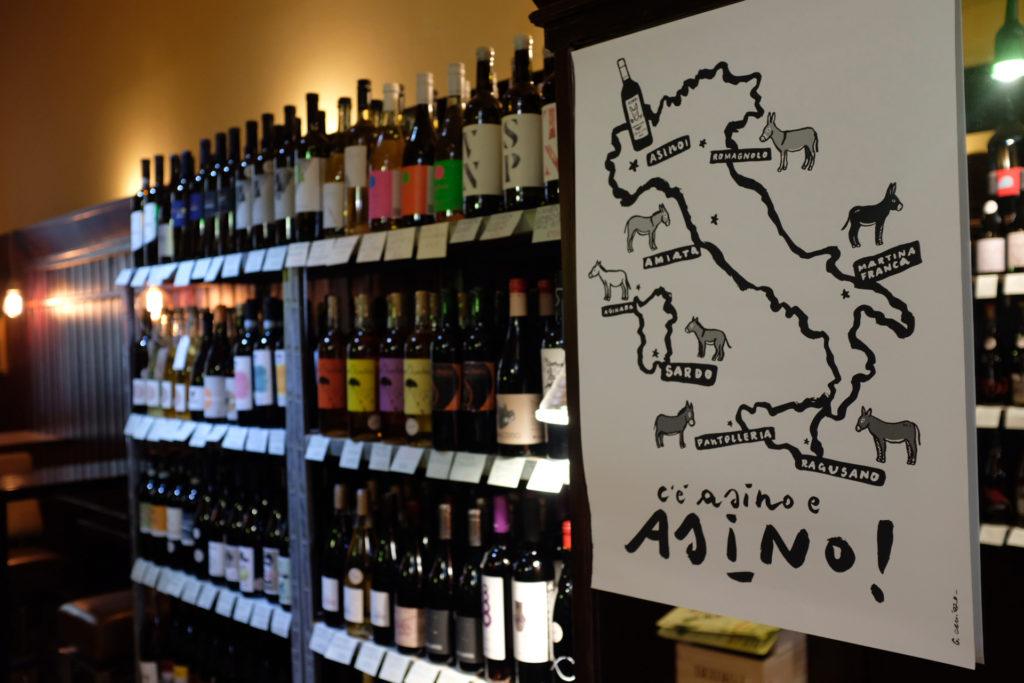
Vinifero
I find that natural winemakers can broadly be lumped into two categories: (1) brand-savvy vignerons with photogenic bottles and well-managed social media accounts and (2) off-the-grid anarchists whose primitive labels reveal certain luddite tendencies that carry over into the winemaking. While there are many places to find the former, Vinifero is a great place to find the latter.
Walking into Vinifero feels a bit like walking into some Western saloon, perhaps lifted from a Sergio Leone film. Well suited for wine storage, the interior is cool and dark, with nary a ray of natural light to spoil a bottle. To the left, a long wooden bar doubles as the cash box. More likely than not, owner Enrico Bachechi has an open bottle or two to offer tastes to customers.
The selection at Vinifero is Italian-centric, with an emphasis on Bachechi’s native Tuscany. Bachechi is still involved in Italy, working with domaines to establish better biodynamic practices in the vineyard.
In addition to a small but intentional selection of Austrian wines, expect lesser-known producers from Slovakia, Czech Republic, and even Vermont. Overwhelmed by so many options, I opt to play it safe, mostly picking up bottles from producers I already know, such as Slovakia’s Strekov and Spain’s Partida Creus.
As I check out, Bachechi confides that one of his biggest challenges is trying to sell red wine in Vienna. Austria is known primarily for white wine, and local consumption is dominated by Austria’s most popular grape: Grüner Veltliner. Bachechi meets the demand for Grüner Veltliner with a house white, sold in a refillable liter bottle. Each bottle has a unique, hand-drawn label.
I on the other hand, have no reservations about red wine, and a real highlight from my haul at Vinifero proves to be Bandita, a 100% Barbera cuvée from Piemonte’s Cascina Tavjin. At 14.5% alcohol, it’s a big, serious wine, but a lively acidity and slight effervescence keep it refreshing and dangerously moreish.
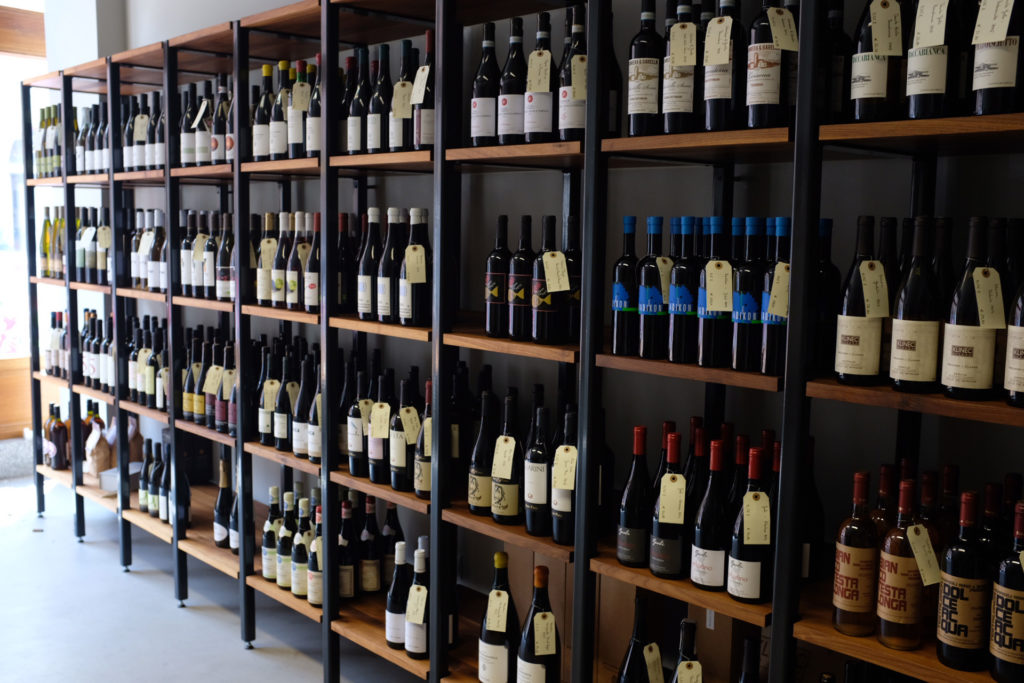
Vinonudo
Tucked between an assortment of camera shops on Westbahnstraße, Vinonudo is a natural wine-only bottle shop. If Vinifero is pub-like with its wooden bar and dim lighting, Vinonudo feels more like a gallery: sparse, clean lines, and well lit.
Again, Italy dominates the line up, with producers as esteemed as Radikon taking up the lion’s share of the long wall. Those searching for Austrian wines will not be disappointed either.
Missing are many of the producers best known outside of Austria—Strohmeir, Christian Tschida, Gut Oggau. (Admittedly, Gut Oggau is widely available in Vienna—even museum gift shops stock them.) But I was thrilled to find a whole row dedicated to third generation Burgundland vignerons Alexander and Maria Koppitsch.
Wine writer Marissa Ross has called Koppitsch’s wines “drinkable but thinkable,” and it’s hard to think of a better description. I enjoy all of the wines from Koppitsch I pick up, but the highlight is “Pretty Nats,” a sparkling rosé that’s a 50/50 blend of Blaufränkisch and Syrah. The wine looks, and tastes, like fizzy peach tea: the perfect summer aperitif.
On the still side, a bottle of Homok, a blend of Grüner Veltliner, Sauvignon Blanc, and Weissburgunder, literally had me coming back for another bottle. Koppitsch ferments the three varieties separately before they are blended unfined and unfiltered with no sulfur. The wine is a cloudy peach color. Certainly, the distinct varietal characteristics shine through, but the result is more than a sum of its part. Versatile and balanced, this is a wine that pairs with practically everything, but doesn’t need anything to be enjoyed.












